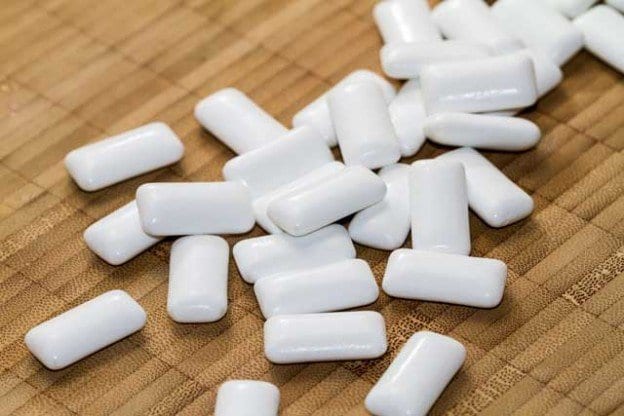There is a lot of buzz going around the internet about low-calorie sweeteners. Some say they are okay to use and others say to stay away from them. Sugar alcohols are just one of the low-calorie sweeteners that many are buzzing about.
Right now in our world, dieters and diabetics are looking for the next best thing when it comes to being able to sweeten their foods without the worry of eating sugar or taking in large portions of calories. Sugar alcohols give the capability to keep both of those things away.
What Are Sugar Alcohols?
If you’ve picked up a package of “sugar-free” gum or an ice cream container that said “no sugar added”, chances are you’ve already seen some sugar alcohols. You just didn’t realize it. Of course, most packages do not say sugar alcohols.
The many names of sugar alcohols include:
Chances are you have probably seen Xylitol more than any of the others because it is more popular among manufacturers. When you see “sugar-free” or “no sugar added” you can pretty much guess that there is going to be a sugar alcohol located within the product. It is a manufacturing law for the label to show how much sugar alcohols are located in the product, such as 5 grams.
You will find sugar alcohols in many products that you buy on a regular basis, such as:
- Pancake syrups
- Gums
- Sodas
- Cookies
- Candy and breath mints
- Ice creams
- Fruit spreads
- Beauty Products – toothpaste and mouth wash
- Medicines – cough syrups and cough drops
Although sugar alcohols sound very self-explanatory, they really are not. There is no sugar or alcohol in a single part of sugar alcohols themselves. They are actually carbohydrates, referred to as polyols. Half of their structure resembles sugar and the other half resembles alcohol. Sugar alcohols can be extracted from plants, naturally. However they are usually manufactured from sugars and starches.
Should You Use Them?
When it comes to sugar alcohols, many people wonder just how safe they are. There is a lot of talk about how unsafe many low-calorie sweeteners really are. Through different studies, researchers suggest that sugar alcohols can provide a number of tummy troubles such as bloating, gas and diarrhea throughout time. This happens because the sugar alcohols can ferment in the intestines as they are not completely absorbed all the way by the body. The American Dietetic Association has stated that consuming more than 50 grams of Sorbitol or 20 grams of Mannitol daily can cause diarrhea issues.
However, there are different reactions with different people. Some people do not have any stomach reactions whatsoever. It is suggested to try different types of sugar alcohols to find out which one works best with your body.
Benefits of Using Sugar Alcohols
There are many benefits in sugar alcohols like:
- They have fewer calories than sugar. Sugar has 4 calories per gram while sugar alcohols have 0.2 to 3 calories per gram.
- Sugar alcohols are better for diabetics than sugar is because it takes little to no insulin for metabolism. However, diabetics should always contact their doctor about low-calorie sweeteners before trying any of them.
- They also do not promote tooth decay and helps to keep cavities away. Xylitol does not allow bacterial growth to form in the mouth. Obviously sugar is the number one culprit in tooth decay.
- You can bake with sugar alcohols and your baked goods will not lose their sweet taste through the heat like sugar does, simply because it cannot be absorbed like sugar.
As you can see there are plenty of good reasons to use sugar alcohols but if you already have tummy troubles, it might not be the best alternative to sugar for you. It is always best to speak with you doctor before trying any new substitute.
